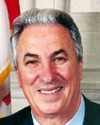a) CIDA has set up a system to track disbursements for the six program priorities identified in the government's 1995 policy statement, "Canada in the World." CIDA officers code projects according to these priorities; if a project addresses more than one, percentages of the project according disbursements are allocated to each of the priorities it addresses. At the end of each year, this weighting is used to measure disbursements for each priority. In sum, CIDA is collecting data on the disbursement of aid by priority, at both the branch and agency levels.
A bilateral project performance review system is also being established to assist managers and staff with managing for results, learning from experience and reporting on achievements. Two
components of this new system are a framework of results and key success factors, which will be used to assess project performance, and a set of assessment tools. This new system will also allow CIDA to report on the results of its bilateral activities by program priority.
b) The government has set a target of 25 per cent of official development assistance, ODA, to be channelled to basic human needs. CIDA programming is being monitored to ensure that we continue to make progress toward meeting this target. Allocation targets have not been set for the remaining priorities. Rather, funds are allocated on a geographic basis, with increasing emphasis on selected low income countries. Country and regional programs are being designed or modified in view of CIDA's six program priorities, with consideration to the development needs and priorities of the country or countries involved.
c) Most projects are implemented over a three to five year period. In the shorter term, however, project audits, evaluations, and ongoing monitoring provide feedback which is used to adjust projects where necessary.
d) CIDA codes its projects according to its six program priorities. Monitoring, audits and evaluations are carried out on projects to identify lessons which are related to these priorities. CIDA has also begun a performance review of its programming in basic human needs which will bring together lessons from a wide range of projects and programs.
e) The six program priorities set out in "Canada in the World" apply to the ODA program. ODA is defined by the development assistance committee of the Organization for Economic Cooperation and Development, OECD, as funding transferred "to developing countries and multilateral institutions provided by official (government) agencies-which meets the following tests: (i) it is administered with the promotion of the economic development and welfare of developing countries as its main objective; and (ii) it is concessional in character and conveys a grant element of at least 25 per cent.
Most of the assistance provided to the countries of central and eastern Europe-countries in transition-is not ODA. Only a few countries in the former Soviet bloc are classified as "developing". It is therefore not subject to the six ODA priorities established by "Canada in the World." Nevertheless, the program integrates many of CIDA's priorities, including governance, human rights and democratic development, the environment and women in development.
It should be noted, that, although responsibility for delivering the program for central and eastern Europe was transferred to CIDA by "Canada in the World", the Department of Foreign Affairs and International Trade continues to be responsible for its overall policy direction.










